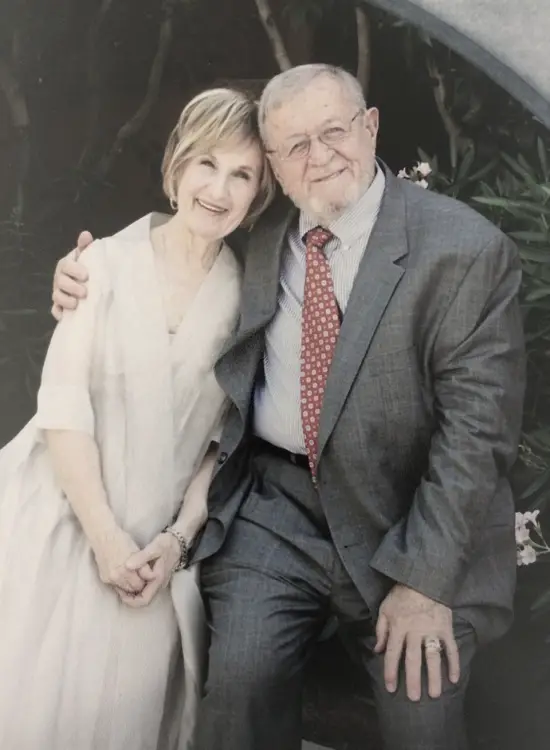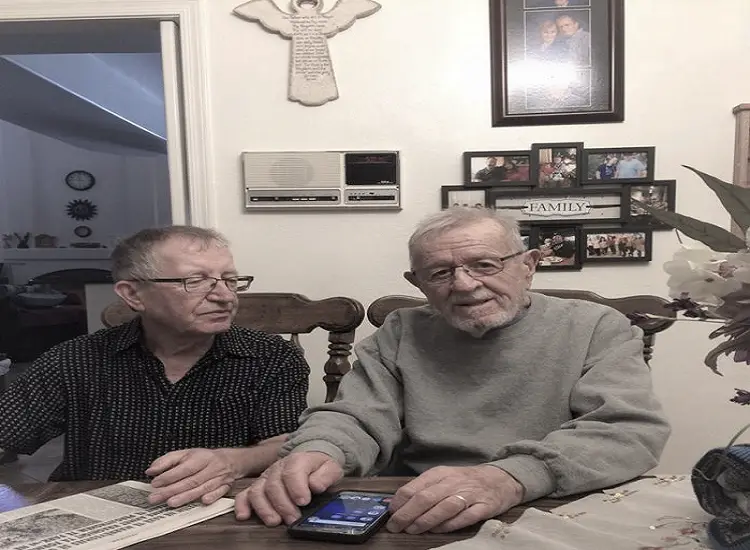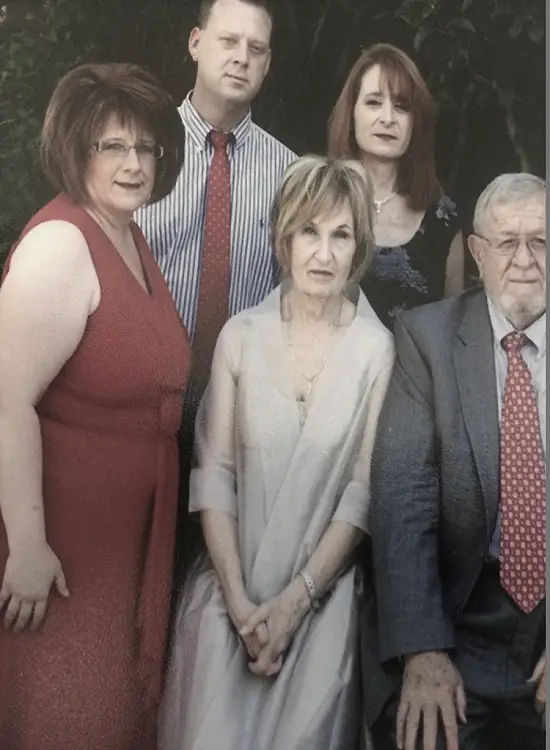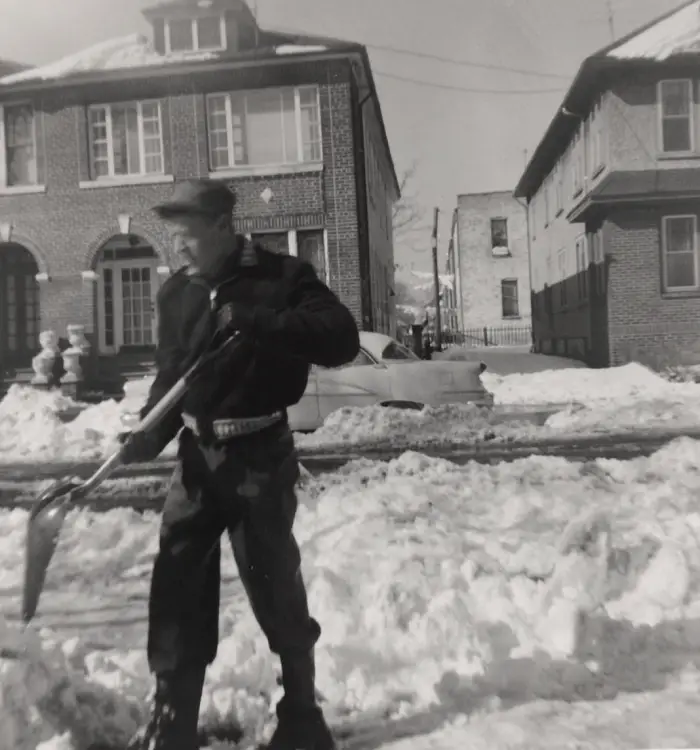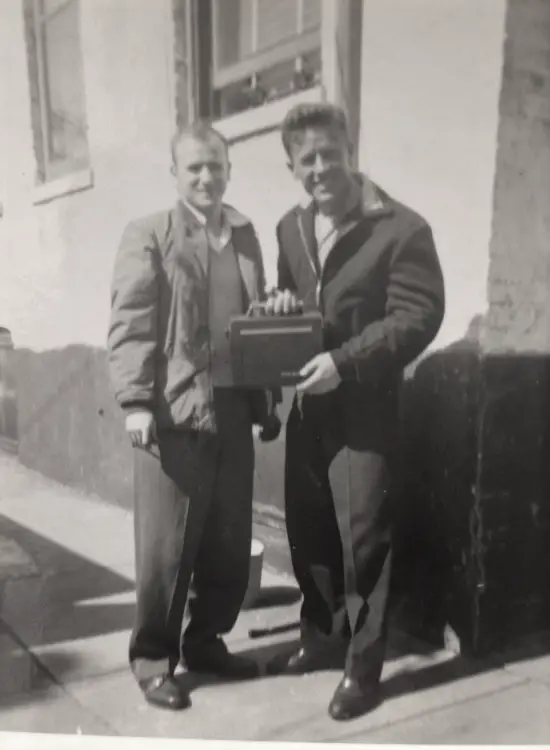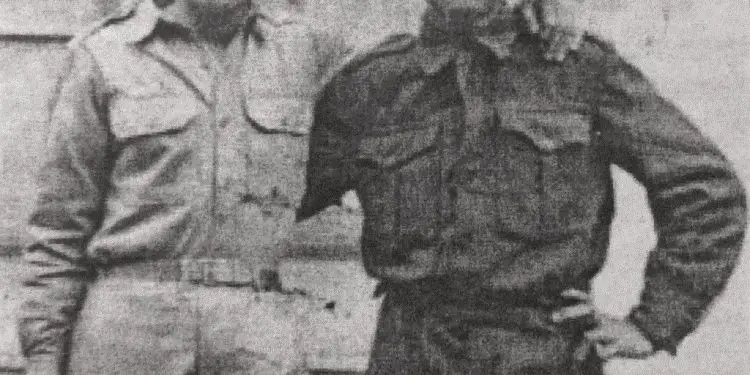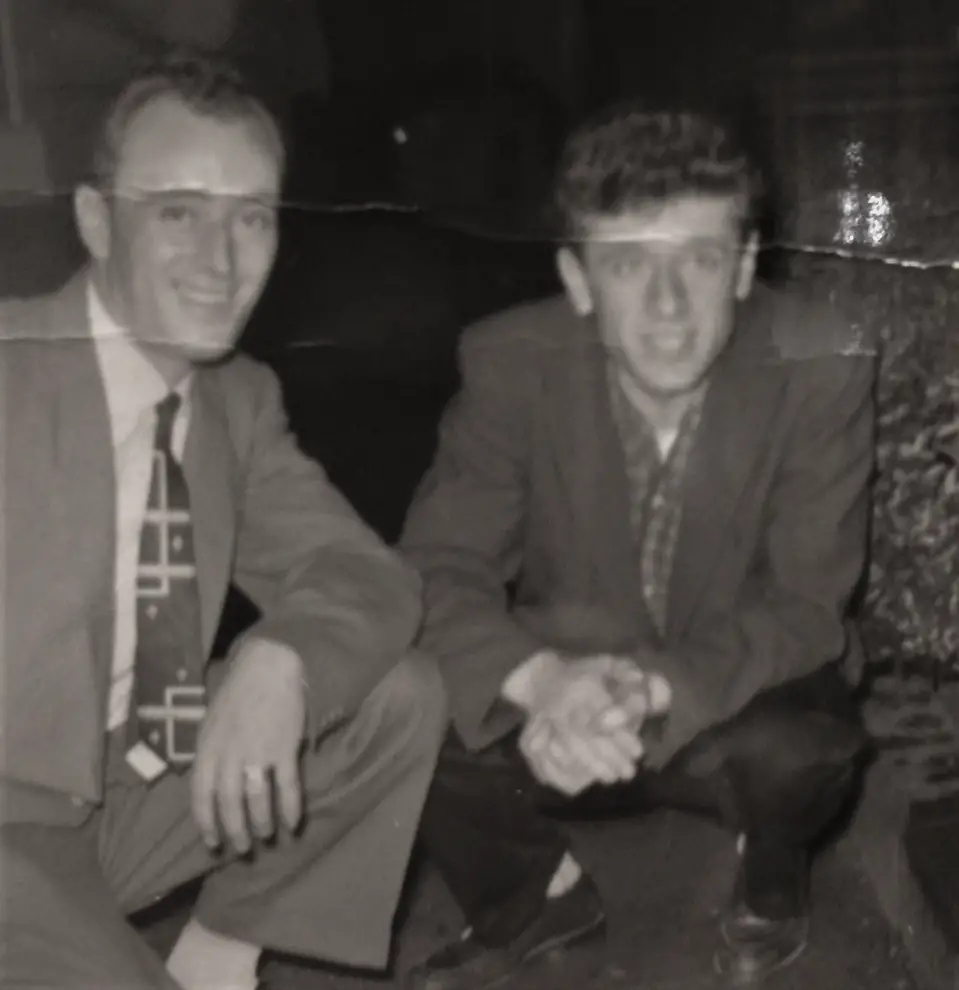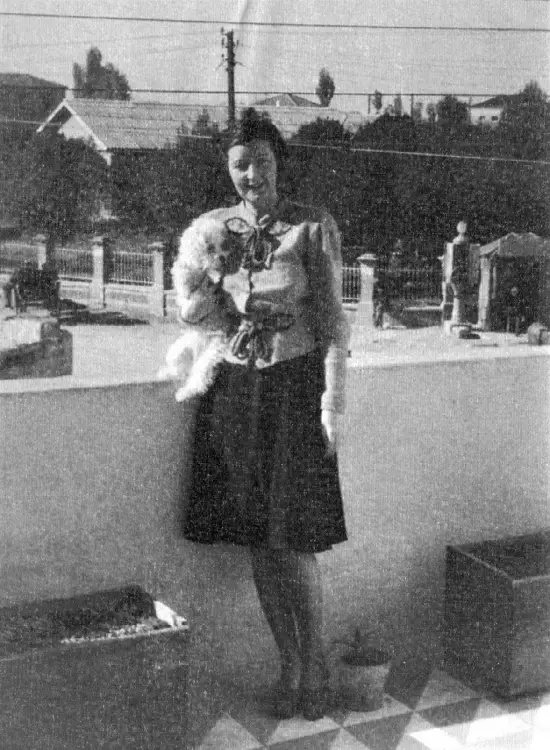By Hajro Hajra
Part four
Memorie.al / An authentic narrative, lived and unadorned, drawn from the carved, but not sleeping, memory of the Albanian who experienced the communist hell, but who managed to escape from that hell thanks to the resourcefulness and great faith that only by coming out of that purgatory, you can fight that icy winter, that infernal fog that had covered Albania from corner to corner, you will read in this article about Remzi Barolli, sentenced to 101 years in prison by the communist regime of Enver Hoxha.
Continues from last issue
In Albania, before the vicissitudes that would follow him for years began, Remzi Barolli had managed to complete only three primary classes. When he came to America in December 1955, he knew Greek relatively well, but not English. He had settled with his uncle Nuriu, and on the same day he arrived in America, his uncle’s son, Oedipus, stabbed him in his father’s restaurant. A policeman had come there; a guest of the restaurant, his name was Joe.
Oedipus had told him about Remzi, he had told him that he had come from Albania, that he was his cousin and that he did not know English. – Okay, we’ll learn – said the policeman to Oedipus, and every day that he went to the restaurant, where Remziu had started working, he brought Remziu a letter with 10 words written in English, so that he could learn and the next day he asked him like a teacher who asks a student. In a way, the policeman had been Remzi’s first teacher.
After 3 months, he managed to learn English so well that the policeman was surprised. Meanwhile, Remziu had started attending classes at “Sarah Jay High School”. Then he went to “Brooklyn Technical High School” for 1 year, where he would learn a trade. He later attended classes at “Jamaica High School”, in Jamaica, Queens. He finished this school in 1960.
In 1957 he started working for Eastern Air Lines. If he didn’t have a high school diploma, he wouldn’t be able to advance at work. He worked there until 1965. At first he worked in loading and unloading luggage and later as a supervisor. Then there was an accident at work and Remziu hurt his back and it took him 5-6 months to move around only with a wheelchair. After this accident he could have retired and would have done so if it wasn’t for the doctor who took care of him after the accident. There was a qifut doctor, Stapleton was his name.
One day he asked Remzi: what are you going to do now? – I will retire, – Remziu had told him. – No, go to school, – he told Remziu, and Remziu immediately decided to start his university studies. He would follow the studies through the state program Division of Vocational Rehabilitation (DVR). Whichever university he went to, the state would pay. In the school year 1966/67, Remziu enrolled in Adelphi University (a private university founded in 1863), in the branch of accounting, not because he had chosen it, but because mathematics, which he loved and knew very well, did not had been there.
There was no history either, which Remziu would also like to study. He completed his university studies instead of 4 years, in 2 and half years, with great success. After completing his studies (in December 1968), he worked for 6 months at the Internal Revenue Service. From the school year 1969/70 to 1993, he started working at the university where he had studied where he taught accounting, but at the same time he also worked as an administrator, because the lecturer’s income was not very good. Meanwhile, he also worked at “Suffolk Community College” in New York and at “Farmingdale State College”, also in New York. In 1974, he began his doctorate in finance and taxation, a title he received in 1977.
In 1995, 2 years after coming to Arizona and a year after his mother died, he started working at the “Arizona Institute of Business and Technology” in Phoenix. He worked there for 11 consecutive years and taught accounting, finance and marketing.
In support of the brothers from Kosovo
The events in Kosovo in America were followed with extraordinary interest. The association developed a dense activity, not only organizing protests related to events that took place in Kosovo during the brutal Serbian rule, both during Tito’s time and after his death, but also by sending petitions to the most important bodies high state officials of America, then contacting prominent personalities, including American senators and congressmen, who did a great job in support of the just struggle of the Kosovar Albanians, for the realization of national rights.
“90 percent of the demonstrations in New York have been organized by this association,” says Remzi Barolli. “To show solidarity with the demonstrations of the spring of 1981 in Kosovo, we organized 50 buses to go to the protests. I had been running for twenty-eight hours straight and the next day I had gone to work. To rally the people, we did not express political or religious sympathies. We always addressed the people with these words: – First we are Albanians, then Muslims, Catholics, Orthodox…!
– At the end of 1989 and the beginning of 1990, for 6 weeks, every Saturday and Sunday, we protested in front of the United Nations Organization, in support of the demands of the Kosovo Albanians. The Albanians of America have always stood in solidarity with the demands of their brothers from Kosovo and have always supported and materially supported the war that was being waged for the destruction of communism in Albania. An announcement for the organization of any protest or any gathering of a political-patriotic character was enough and the Albanians would be found in the designated place.
The media have closely followed the activities of the Association and have reported on the events in Kosovo mainly objectively, with minor exceptions. Many of the members of this association, the most influential ones, in addition to having had numerous contacts with American officials, have also given a series of interviews, all with the aim of raising awareness of the Albanian issue, not only among the stratum of people with influence in politics Americans, but also to ordinary citizens, who until recently did not even know where Kosovo is”.
Meetings with Leka Zogun
The fight of the American Albanians for the collapse of communism in Albania was carried out with a specific program and was led by influential people. One of them was King Leka Zogu, who was in permanent contact with Remzi Barolli and other Albanian activists in America, who were fighting for a free and democratic Albania in the full sense of the word.
– Leka, heir to the Albanian Royal Throne, – says Remziu, – has been here, in America, several times. Every time he came, he was a guest at my house in New York. During these many meetings, we talked about our common problems, about Albania, which was dying under the bloody communist regime, and about Kosovo, which was being bled by the barbaric Serbian rule. Leka has greatly helped our fight against the reds of Tirana. Although he lived in the South African Republic, he came to America whenever there was a need to coordinate the affairs of our anti-communist war.
Efforts were made to unite all right-wing anti-communist forces and to create a common anti-communist front that would fight communism with all means and with all possibilities. A totalitarian regime like the one in Albania, where most of the budget was spent on the construction of hundreds of thousands of bunkers all over Albania, for armaments, for propaganda against “American imperialism”, for the publication of numerous luxurious volumes of the works of Enver Hoxha and others. to the classics of Marxism-Leninism, for spreading the “rays of socialism” in the four corners of the globe, for holding congresses and conferences of the Albanian Labor Party and others, it was difficult to move without the union of all forces, although this depended largely from political movements in the world, from the interests of the great powers”.
For the first time in the Motherland
When many countries of the former Socialist Bloc were finally throwing off the shackles of communist slavery and when in Albania the movements had just begun to end the half-century communist dictatorship, and when the collapse of communism was only a matter of days, Remzi Barolli as a supporter of the flames of democratic changes, he was getting ready to help his country, which for 50 years had carried the heavy weight of the red dictatorship on its shoulders.
At the time when Ramiz Alia was still in power, Remzi Barolli with a group of Albanians from New York, for the first time after nearly half a century, was visiting the Albanian Land, which until yesterday he had only been able to go to illegally. This was an event that rarely happens in human life and which Remziu had expected as something very, very special. He was going for the first time after nearly forty years, freely to his beloved Motherland.
During his long life in exile, far from the Motherland, Remzi Barolli had always imagined the day when he would go to Albania, without being forced to secretly jump with a parachute, or cross the border to a place where he could die. That day had come and he had awaited it with both joy and longing. He would see his beloved Albania, for which he had risked his life many times during illegal entry and exit there. He would see his mother, whom he hardly knew, because it had been almost fifty years since he had seen her, he would see his relatives, those who had managed to escape alive.
– “I was the first escaped Albanian who returned to Albania” – says Mr. Barolli. I went there with a group of Albanians from New York. The purpose of our visit was to help the Albanian economy. Ramiz Alia was still in power. He had not agreed to meet with us, even though we had asked to meet him.”
– “We were received extremely well everywhere,” continues Remziu’s narration. – We visited Tirana, Durrës, Shkodra, Korça. Everywhere they gave us a magnificent welcome. When I went to my home village, in Trestenik i Devolli, we had to leave the bus far from the village, because it was impossible to penetrate the huge crowd of people who had come out to meet us. Meetings with relatives, first cousins, fellow villagers were very touching moments. We didn’t know each other. We asked which is whose. Many of my peers were no longer alive. The great suffering was visible on everyone’s faces. Poverty had left deep traces on people’s faces, on their bodies, on their souls.
He had not been able to provide any information about the mother. He knew that he was somewhere in a prison or a labor camp, but no one knew or wanted to give him accurate information.
Albania needed help
After the arrival of Sali Berisha at the head of the Albanian state, Remzi Barolli visited Albania with an Albanian-American delegation. The reception given to this delegation had been extremely good. The guests from America had visited many Albanian cities and settlements and were welcomed with flowers everywhere. The Albanians, although poor and suffering, had preserved their noble spirit. During the numerous meetings with them, the Albanian-American delegation was informed about their troubles and promised them that they would do their best to help them, of course in an institutional way.
– “We also met with Sali Berisha,” says Barolli. – We talked for four hours in his office. I worked with a group of American experts to help with banking, economic, accounting and computer issues. In 1993, I sent 300 pages of work model to Sali Berisha, but I never received a reply.
– After every visit to Albania, I returned very disappointed. I could not believe that Albania had only been destroyed, nothing had been built. Communism had indeed collapsed, but that communism had eroded the foundations of Albania, which needs a very long time to get back on its feet. That’s how it was 20 years ago, during my first visits to Albania. Even today, things have changed little in Albania. Instead of moving forward, instead of being democratized, today Albania has plunged into chaos, it has almost restored communism and the people, the majority, are living as badly as in the time of Enver Hoxha” – says Remzi Barolli very disappointed .
The first meeting with the mother after nearly 50 years
After the fall of communism in Albania, the American State Department called Remzi Barolli: – You can get people out of Albania. Who you want and as much as you want. – This made me very happy, – says Remziu, – because I had in mind the fact that the few relatives of mine who were still alive were in a serious economic situation, but also being aware that, although at the head of the Albanian state there was came a democratic right-wing government, changes could not be made quickly.
A state destroyed by communism for half a century would need a long time to recover, while the marks left by the savage anti-national regime, especially in the psyche of the Albanians, can hardly be erased by even a century all. Of course, the mother came first, then the others. It was the end of October 1989. I withdrew 32 thousand dollars from the bank and went to the American Embassy in Romania. I stayed there for 2 and half weeks. Then I went to Budapest. I was with Nexhmi and nephew Arian. I took my sister, brother, nephew and some others out of Albania, a total of 16 people.
– To get my mother out of the camp (even though she was released, she still stayed in the camp, because she had nowhere to go, the house was destroyed), I was forced to run a lot, – says Remziu.
An employee at the American State Department, named Suzana Sutton, was the first American to go to Albania after the fall of communism (in July 1990). She had talked with Ramiz Alina and asked for the release of Ramziu’s mother, but he had replied: – I am the head of state and I don’t deal with individuals. Memorie.al
The next issue follows




